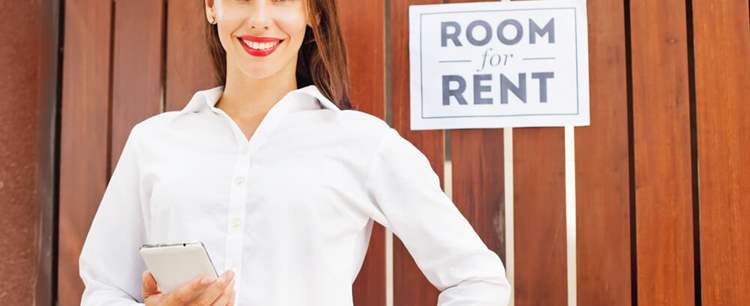Having to pay tax is always likely to be a bitter pill to swallow – especially if you have gone out of your way and worked hard to earn it.
The good news, therefore, is that by taking on the role of a landlord and letting out a spare room in your home, you stand to make up to £7,500 a year on those earning without having to pay a penny in tax.
Not only is that £7,500 a tidy sum – more than £600 a month in your pocket (and more than you might be able to earn in any second, part-time job) – but you will also be doing your bit to ease what is a chronic shortage of affordable housing for many people at the moment.
The Rent a Room scheme
You are eligible to join the government’s Rent a Room scheme if you are the owner of a home or are the tenant of property in which you let out a furnished room to a lodger. Whatever you earn from that letting – up to a maximum of £7,500 in any one year – is free of tax. If you are a tenant looking to let a room in the property you are renting, of course, you will also need to have obtained permission from your landlord to sublet a room in the property.
If you are a joint owner or joint tenant of the property, the tax-free allowance is £3,750 each.
If your income from the let room is below the tax threshold, you don’t have to do anything to claim the relief. If you earn more than £7,500 (or £3,750 as a joint owner or tenant) in a year, then you need to complete a tax return in order to claim the allowance.
If you are in receipt of Housing Benefit – or, more likely, the Universal Credit that has superseded it – the calculations may be slightly more complicated and are explained by the Money Advice Service. Your Housing Benefit, for example, might be affected by whether you are letting a spare room to a boarder (to whom you provide cooked food) or a sub-tenant.
The tax-free allowance of £7,500 a year may be an attractive prospect but there are still situations in which you might want to opt out of the scheme and instead offset a number of the expenses involved in letting out the room against your general liability for income tax. Expenses, explains the website Spare Room, such as:
- Council Tax;
- any ground rent and service charges you pay as a tenant or leaseholder;
- cleaning;
- utility bills;
- interest on loans related to the property; and
- your building and contents home insurance.
Building and contents home insurance
Whether you are letting a spare room in the house you own or one you are renting, it is important to safeguard your interests in the property by way of home insurance with lodgers.
As we point out on our relevant product pages, specialist home insurance when you have let a spare room to a lodger or lodgers recognises the fact that this is a person or persons with whom you are actively sharing your home. There is not the physical distance between landlord and tenant that you would establish if you were letting self-contained accommodation. Indeed, the Rent a Room scheme – and its tax benefits – do not apply to any self-contained accommodation you have let.
Risks against which you might want to be especially aware – and for which lodgers’ home insurance provide protection – include the following:
- normally – and in most regular home insurance policies – claims for theft are typically conditional on some break-in or attempted break-in having been committed;
- if you are letting a room in your home, however, any theft of your possessions might be as a result of the “inside job” committed by your lodger – and specialist home insurance for lodgers recognises that distinction;
- when you have someone sharing your home with you – and even though they are paying your rent for that courtesy – the risk to the contents of your home because of accidental damage is increased and your insurance needs to reflect that fact;
- you will need to establish whether home contents cover safeguards just your own belongings and whether your lodger will be arranging his or her own cover;
- if your own the property, of course, you will also need adequate buildings insurance to safeguard the structure and fabric of the building – up to its estimated reconstruction costs;
- once you take in a lodger, you also assume responsibility for his or her safety against physical injury or property damage – that landlord or public liability insurance may be a critical component of your home insurance with lodgers.
When arranging your home insurance before taking in a lodger, you might also want to check whether the cover extends to more than one lodger – and, if so, for how many.
Finally, while renting a room may be an attractive proposition, making sure you have done your due diligence and have the correct lodger insurance in place will help ensure its success.







